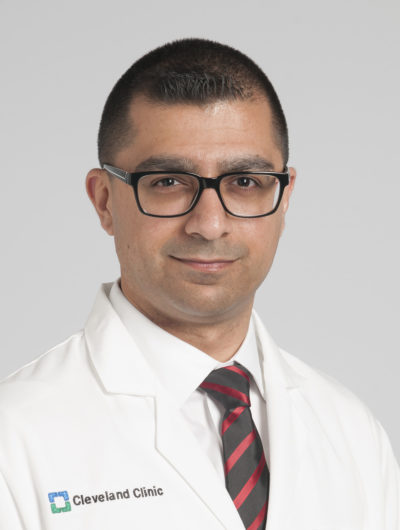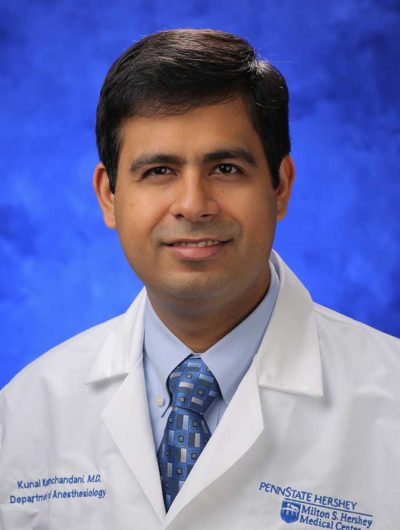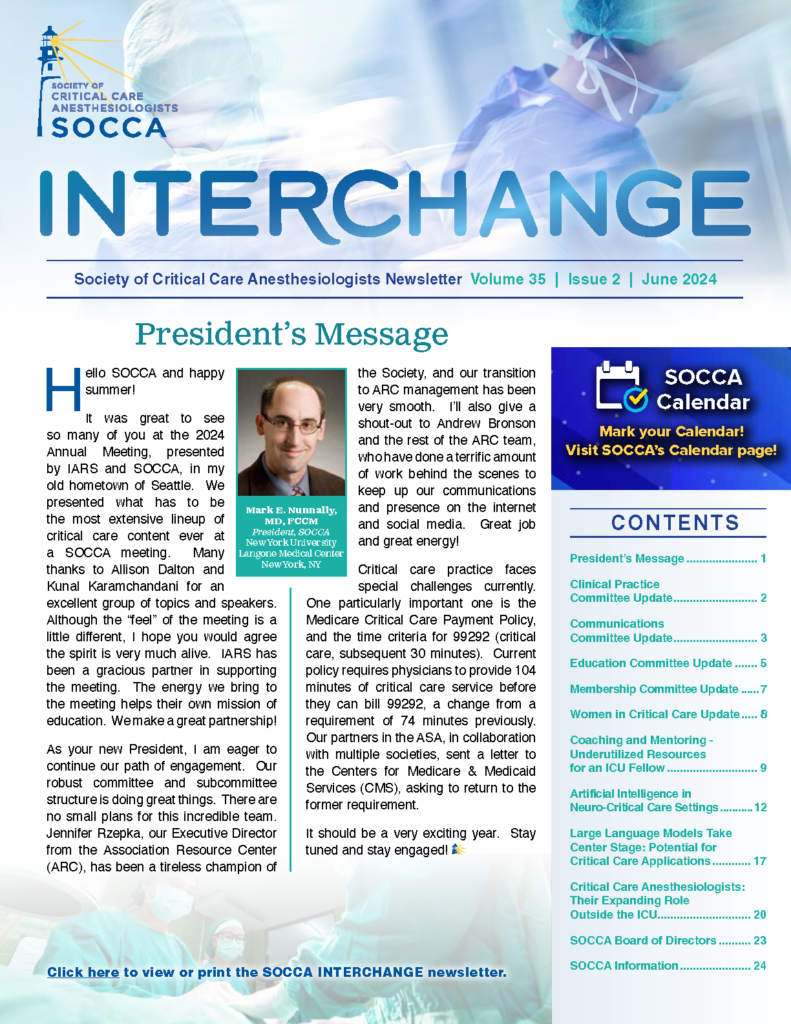Annual Meeting Preview- Beyond the Standard: New Resuscitation Paradigms in Critical Care
As a Critical Care Anesthesiologist, do you ever wonder what to say when the nurse asks you what blood pressure you want to target? Or do you ever wonder if all the effort you have put into resuscitating your patients is successful? Are you confused about how to use new and novel technologies to measure end-organ perfusion? Then you definitely need to attend this panel at the upcoming SOCCA 2019 Annual Meeting and Critical Care Update. In this 60-minute panel, I will be moderating a discussion between three experts: Dr. Ashish Khanna, Dr. Kunal Karamchandani and Dr. Mark Nunnally, entitled “Beyond the Standard: New Resuscitation Paradigms in Critical Care”
In this panel:

Talia Ben-Jacob, MD
Moderator
Cooper Medical School of Rowan University,
Cooper University Hospital
Camden, New Jersey

Ashish K. Khanna, MD, FCCP, FCCM
Wake Forest University School of Medicine
Dr. Ashish Khanna will discuss the optimal target blood pressure for patients undergoing resuscitation. His talk will include a review of the literature to assess whether a higher blood pressure target MAP target of 80-90 is better than the standard MAP target of > 65 in critically ill patients. In addition, he will describe important adverse effects in untreated hypotension.

Kunal Karamchandani, MD, FCCP
Penn State Milton S. Hershey Medical Center
Dr. Kunal Karamchandani will describe the utility of using microcirculation monitors to guide ongoing resuscitation and will review the evidence for and against using markers of macro-circulation to determine successful end organ perfusion.

Mark Nunnally, MD, FCCM
New York University Langone Medical Center
Dr. Mark Nunnally will detail recent revisions to the Surviving Sepsis Campaign, highlighting controversies and evolving paradigms. Most importantly, he will underscore areas in the published guidelines that represent key features of sepsis management that have not changed, even though our understanding has changed, highlighting key differences and reasoning for these differences.



































